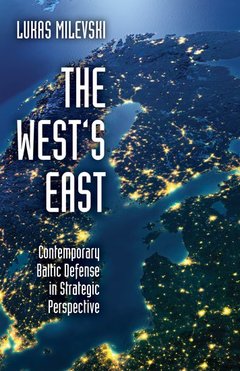Description
The West's East
Contemporary Baltic Defense in Strategic Perspective
Author: Milevski Lukas
Language: English
Subject for The West's East:
Publication date: 07-2018
240 p. · 14.7x22.3 cm · Hardback
240 p. · 14.7x22.3 cm · Hardback
Description
/li>Biography
/li>
Defense of the Baltic has gained unprecedented prominence in the West in view of a post-2014 resurgent Russia. The West's East follows the principles of strategic analysis for a systematic introduction to defense of the three Baltic states within their own context of broader security vulnerabilities as well as the historical and current contexts of both allies and neighboring powers. This 800-year overview-from indigenous Baltic tribes to the post-Cold War period-provides a historical and strategic perspective on conditions in which independent states existed and flourished among predatory great powers. More recent historical events and personalities also form the basis for analogies which are often used, rightly or wrongly, by Western observers to understand Russia and its relationship to the West. Today's strategic balance in the Baltic region is characterized through general analysis of the individual actors' geopolitical outlook, strategic culture, military capabilities, and non-military security vulnerabilities. The dynamics of potential strategic interactions between NATO and Russia are anticipated in case of hypothetical conflict in the Baltic, premised upon the general theory of strategy and essential strategic logic. These potential interactions range from deterrence, through various considerations of strategy in war itself, and the thorniness of war termination. Finally, more technical and esoteric aspects of military strategy related to instrumentality, effect, adversary, and control are considered in relation to the ultimate question of how much defense for the Baltic is enough.
Lukas Milevski teaches strategy-related topics as a Lecturer at the University of Leiden. He is a Baltic Sea Fellow of the Foreign Policy Research Institute and is currently researching Polish deterrence for the Sasakawa Peace Foundation/Changing Character of War Programme, University of Oxford, where he also wrote this volume as a Smith Richardson Strategy and Policy Fellow 2015-16.
© 2024 LAVOISIER S.A.S.

